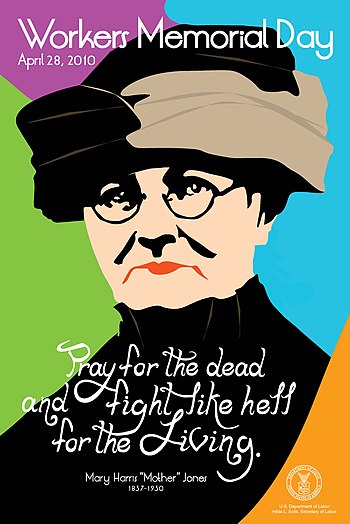5.2.8 Degrading or Harassing Behavior
Conduct that creates or attempts to create an intimidating, hostile or offensive environment for an individual or group including but not limited to action(s) or statement(s) that threaten harm, stalking, voyeurism or any other form of unwanted contact which interferes with an individual’s educational pursuits or activities.
Acts of Intolerance
The following section was created to provide students with information about options in
addressing acts of intolerance they may directly experience or observe others experiencing. An
act of intolerance is an action by an individual or group that fosters hatred or prejudice because of
another’s ethnicity, religion, ancestry, national origin, gender, age, sexual orientation, gender
identity, marital status, medical condition or disability.
Although these incidents may not fit the
legal definition of a crime, they often result in feeling belittled, threatened or intimidated. USF’s
commitment to advancing diversity is incorporated into our daily life at the University through
consistent attempts by faculty, staff and students to prevent harmful behavior. Acts of intolerance
can be subtle or direct, as noted in the following examples:
• A student’s residence hall room door is defaced with graphic words about his/her presumed
sexual orientation or racist graffiti is written on sidewalks and entrances to campus buildings.
• Disparaging remarks are made during a classroom discussion, at an extracurricular activity, or
in the residence halls.
For instance, a guest lecturer makes a “joke” about Jews being good with
money or a demeaning comment about women such as, “Women don’t belong in higher
education.”
• Flyers posted by a student organization are defaced with comments about the nature of the event
or the purpose of the group. For example, flyers advertising a meeting or organization may be
covered with slurs that serve to demean a group’s membership based on its national origin.
Preventing Acts of Intolerance
A single act of intolerance can erode our sense of community. We must all take responsibility for
speaking out against hatred and prejudice and for helping to prevent such occurrences. If you
should witness or hear about an incident on campus, we encourage you to take action:
• Speak up and let others know that we do not accept acts of intolerance in any form. Work
together to be part of the solution. Silence may be interpreted as disinterest or even approval.
• Ask for help and guidance from one of the resources included below.
• Show your concern for and support of any individual or group that experiences an act of hatred
or intolerance on campus.
Filing a Report
Any student or community member who observes or is a victim of an act of intolerance can report
the incident by contacting the Department of Public Safety (24 hours a day, 7 days a week) at
(415) 422-4201 or the Assistant Vice Provost and Associate Dean of Student Development's
office on the UC 5th floor (M-F 8:30 am - 5:00pm) at (415) 422-5330.
Resources
Students are encouraged to respond to acts of intolerance whether or not they have been a direct
victim; observing or witnessing an incident is reason enough to speak out. If you are uncertain
what you would like to do or what your options are staff at Counseling and Psychological
Services (422-6352); the Executive Director of University Ministry (422-4463); and the
Ombudsperson (422-2761) can assist and offer confidential support in the following ways:
• Mediating differences between the victim and alleged offender in a safe environment.
•
Providing advice on response options to seek redress under University policy.
• Providing psychological support through free, confidential, on-campus counseling.
• Providing referral to outside resources.
•
Arranging an educational response (training, presentation, article in the Foghorn).
Other Helpful, Nonconfidential Resources
If you would like to initiate a formal process, other offices can provide assistance, but cannot
assure confidentiality since they are legally bound to report certain incidents.
For issues related to staff, contact:
• Human Resources—(415) 422-6707
For student to student issues, contact:
• Student Housing and Residential Education—(415) 422-6824
• Student Life—(415) 422-5330—Assistant Vice Provost and Associate Dean of Student
Development
• Health Promotion Services—(415) 422-5797
• Public Safety—(415) 422-4222
For issues related to faculty, contact:
• Deans’ offices in the appropriate school
from the blog of Adam Steinbaugh, who is a law clerk in LA
Jason Willick of the Stanford Political Journal has a
well-considered post criticizing Stanford’s recent suspension of a fraternity’s housing ‘privileges’ over an evening of patently offensive, misogynistic jokes. Willick’s criticism effortlessly weaves themes of free speech, from the evolution of speech codes to Charlie Hebdo. You should
read it.
Were Stanford a public university, its suspension of the fraternity’s housing privileges would likely violate the First Amendment: uncouth, cringeworthy jokes do not fall within any exception to the First Amendment. But Stanford is a private institution and a private institution can dictate what is acceptable discourse.
Except in California. And definitely not when you’re Leland Stanford Junior University. Because when you’re Stanford, a California judge has already explained this to you.
As Willick rightly notes, California’s “Leonard Law” prohibits private colleges and universities from acts which, if taken by a public institution, would infringe upon a student’s First Amendment rights. California
Education Code Section 94367(a) reads:
(a) No private postsecondary educational institution shall make or enforce a rule subjecting a student to disciplinary sanctions solely on the basis of conduct that is speech or other communication that, when engaged in outside the campus or facility of a private postsecondary institution, is protected from governmental restriction by the First Amendment to the United States Constitution or Section 2 of Article I of the California Constitution.
The statute proceeds to authorize students subject to such a rule to seek declaratory and injunctive relief, and gives a court discretion to award attorney’s fees to a prevailing party. Institutions controlled by religious organizations are generally exempt, and there are some throw-away subsections apparently designed to assure legislators (or voters) that the statute isn’t intended to authorize speech which can’t be proscribed consistent with the First Amendment.
This is not the first time Stanford has encountered the Leonard Law. In fact, Stanford is the only institution (to my knowledge) to have been successfully sued under the law.
Sometime around 1990, Stanford enacted a
speech code which included the following:
Prohibited harassment includes discriminatory intimidation by threats of violence, and also includes personal vilification of students on the basis of their sex, race, color, handicap, religion, sexual orientation, or national and ethnic origin.
Speech or other expression constitutes harassment by personal vilification if it:
a) is intended to insult or stigmatize an individual or a small number of individuals on the basis of their sex, race, color, handicap, religion, sexual orientation, or national and ethnic origin; and
b) is addressed directly to the individual or individuals whom it insults or stigmatizes; and
c) makes use of insulting or “fighting” words or non-verbal symbols.
from firstamendmentcenter.org
What rights to freedom of expression do students have?
Public school students possess a range of free-expression rights under the First Amendment. Students can speak, write articles, assemble to form groups and even petition school officials on issues. The U.S. Supreme Court has said that students “do not shed their constitutional rights to freedom of speech and expression at the schoolhouse gate.”
There is a fundamental distinction between public and private school students under the First Amendment. The First Amendment and the other provisions of the Bill of Rights limit the government from infringing on an individual’s rights. Public school officials act as part of the government and are called state actors. As such, they must act according to the principles in the Bill of Rights. Private schools, however, aren’t arms of the government. Therefore, the First Amendment does not provide protection for students at private schools.
Though public school students do possess First Amendment freedoms, the courts allow school officials to regulate certain types of student expression. For example, school officials may prohibit speech that substantially disrupts the school environment or that invades the rights of others. Many courts have held that school officials can restrict student speech that is lewd.
Don’t certain kinds of harsh or insensitive speech tend to silence others’ free expression, thereby working against the free exchange of ideas?
An offended person’s decision not to speak is hardly a reason to suppress the speech of others. Those who find an idea, epithet, literary work or other form of expression offensive can oppose, counteract and perhaps refute it with further speech — not by banning the speech deemed to be offensive.
As Justice Louis Brandeis said in a famous quote, “If there be time to expose through discussion the falsehood and fallacies, to avert the evil by the processes of education, the remedy to be applied is more speech, not enforced silence.”
As long as they don’t discriminate against certain speakers or messages, what’s wrong with campus free-speech zones?
First Amendment advocates say an entire campus should be a free-speech zone because the purpose of a public college or university is to allow and to explore all points of view. Free-speech supporters thus express suspicion that designating zones is a way of limiting and discouraging free speech.
Have courts addressed whether clapping at public meetings is protected by the First Amendment?
The California Supreme Court addressed this issue in 1970 in the case of In Re Kay, 1 Cal.3d 930. “Audience activities, such as heckling, interrupting, harsh questioning, and booing, even though they may be impolite and discourteous, can nonetheless advance the goals of the First Amendment. For many citizens such participation in public meetings, whether supportive or critical of the speaker, may constitute the only manner in which they can express their views to a large number of people.”
The court continued: “‘Disturbances’ of meetings arise in a wide variety of forms; the modern techniques of the ‘politics of peaceful confrontation’ frequently result in a clash of ideological expressions which may, in many senses, ‘disturb’ a meeting. Without doubt petitioners’ conduct in the instant case, including clapping … was ‘closely akin to “pure speech”’” (quoting Tinker v. Des Moines Independent Community School District).













